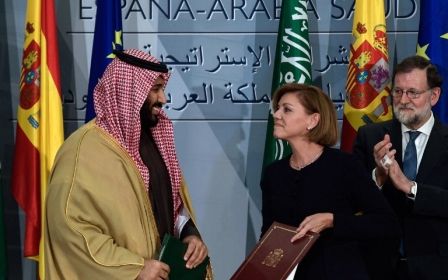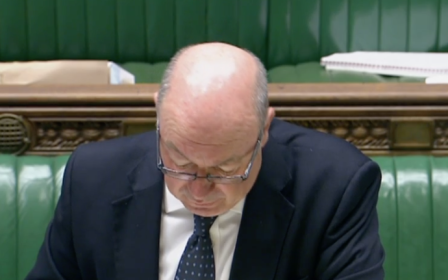Spain U-turns on ending bomb contract with Saudi after jobs threat

Spain is resuming the sale of bombs to Saudi Arabia despite an announcement last week to the contrary, Spanish Minister of Foreign Affairs Josep Borrell confirmed on Thursday.
He said, however, that the bombs have “extraordinary precision” and claimed they would not cause collateral damage.
Last Tuesday, the Spanish Defence Ministry said it was planning to cancel the sale of 400 laser-guided bombs to Saudi Arabia over concerns they would be used in war crimes against civilians in Yemen. Saudi Arabia had already paid $10.6m for the bombs.
The Saudi-Spanish bomb contract was signed in 2015 under the previous conservative Spanish administration.
Last week’s decision seemed to signal a change of approach by the new socialist government, led by Pedro Sanchez.
European countries Sweden, Germany, Finland, Norway and Belgium have suspended the sale of arms that could be used in the war in Yemen. Spain, however, does not seem to have followed suit.
The new decision "seems to indicate that Saudi threats of withdrawing other commercial contracts from Spain, paired with a lack of backing from other EU member states, has led the Spanish government to backtrack on what would have been a brave, ethical foreign policy decision," Kristina Kausch, a senior resident fellow at the German Marshall Fund, told Middle East Eye.
On Monday, Spain's Minister of Defence Margarita Robles told the nation's parliament that the issue with Saudi Arabia would be “resolved amicably” according to “a bilateral framework.”
A separate warship deal signed in April 2017 would go ahead as planned, she confirmed.
Spanish media also reported this week that Saudi Arabia was planning to retaliate against the cancellation of the contract by scrapping a warship contract worth $2.2bn that would create 6,000 jobs in Spain - as the European country struggles with a 16 percent unemployment rate.
This coincided with calls for a snap election in Andalusia, where the warship building company is located. The socialist governor of Andalusia has reportedly lobbied the central government to maintain its arms deals with Saudi Arabia for fear of losing the jobs, and his seat.
On Wednesday, Spanish newspaper El Periodico cited diplomatic sources as saying the contract would not be cancelled as previously stated.
Eduard Soler Lecha, an analyst at the Barcelona Centre for International Affairs, said the previous decision to suspend the sale of bombs was guided both by moral considerations and an attempt to signal a new approach to relations with Saudi Arabia, one that differed sharply from the ousted conservative government.
He said the new decision highlights a lack of coordination among different government agencies on this issue.
“Those that took the first decision [in the Ministry of Defence] and communicated it to the press may not have calculated the costs and do not seem to have ensured the support of the government as a whole,” he told MEE.
The US, UK and other European countries, including Spain, have provided military and intelligence support to the Saudi-led war in Yemen that began in 2015 to restore the government of president Abd Rabbuh Mansour Hadi, who was ousted by Houthi rebels that year.
The war has killed over 10,000 civilians and left millions on the brink of famine.
“There is extensive evidence that irresponsible arms flows to the Saudi Arabia-led coalition have resulted in enormous harm to Yemeni civilians. But this has not deterred the USA, the UK and other states, including France, Spain and Italy, from continuing transfers of billions of dollars’ worth of such arms,” Amnesty International has said.
The Spanish embassy in London did not immediately respond to Middle East Eye’s request for comment.
Stay informed with MEE's newsletters
Sign up to get the latest alerts, insights and analysis, starting with Turkey Unpacked
Middle East Eye delivers independent and unrivalled coverage and analysis of the Middle East, North Africa and beyond. To learn more about republishing this content and the associated fees, please fill out this form. More about MEE can be found here.




